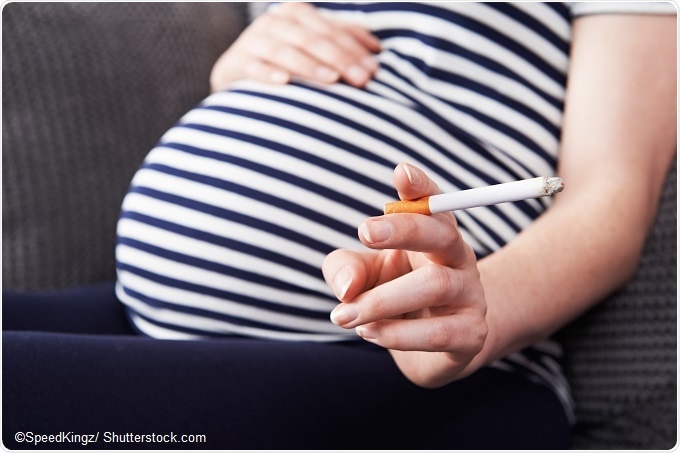A new stem cell study has shown the damaging impact cigarette smoke can have on the developing liver tissue of unborn fetuses.
The study also revealed differences in the type of damage caused between male and female fetuses.

Led by Edinburgh University, researchers developed a way of assessing the long-term effects exposure to cigarette chemicals (of which there are about 7,000) has on fetal liver cells, using embryonic stem cells.
Although maternal smoking has already been shown to damage fetal liver tissue, problems with the models used so far have led to “difficulties in data extrapolation toward human development,” explain the authors.
David Hay from the University’s Center for Regenerative Medicine says: “This new approach means that we now have sources of renewable tissue that will enable us to understand the cellular effect of cigarettes on the unborn fetus.”
Hay and team used pluripotent stem cells to grow fetal liver tissue. Pluripotent stem cells are non-specialised cells that can potentially differentiate into the main types of cells from which organs and tissues develop in the embryo.
This liver tissue was then exposed to the harmful chemicals contained in cigarettes, including those known to circulate in the fetal bloodstream as a result of maternal smoking.
The researchers found that exposure to a mixture of the chemicals, similar to the cocktail found in cigarettes, caused more damage to the liver tissue than individual smoking derivatives did.
They also found that the type of damage differed between male and female fetuses. In males, the pathways that regulate liver scarring were affected, whereas in females glucose metabolism was more affected.
The research, which was carried out in collaboration with the Universities of Aberdeen and Glasgow is published in Archives of Toxicology.
Paul Fowler (University of Aberdeen) says the work is part of an ongoing project to understand how cigarette smoking by pregnant mothers has harmful effects on the developing fetus.
“Our approach has shown that pluripotent stem cell derived hepatoblasts and hepatocytes represent a useful tool to model fetal liver biology ‘in the dish’, providing valuable information on sex differences that occur following exposure to components of cigarette smoke,” conclude the authors.